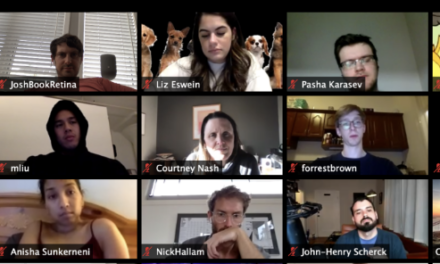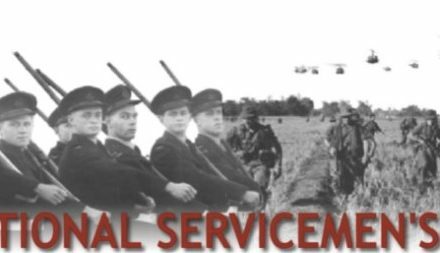The Rise, Fall and Future of Kokoda Tourism
Official data, based on the number of Trek Permits issued by the Kokoda Track (Special Purpose) Authority (KTA), reveals that villagers across the Kokoda Trail have suffered a cumulative decline of K49.7 million in lost income opportunities since the DFAT-Kokoda Initiative assumed responsibility for its management in 2009.
A Kokoda Livelihoods Study by Pacific Islands Projects revealed the DFAT-Kokoda Initiative allocates just 1% of their budget to ‘income generating projects’ for villagers across the Trail.
KEY FACTS
- Prior to the 50th anniversary of the Kokoda campaign in 1992 fewer than 100 Australians trekked across the Kokoda Trail each year. They did not have to pay any fees and were self-sufficient with their own camping gear and ration packs.
- Apart from employing one or two local guides, and buying some fresh food, there were few economic benefits for local subsistence villagers. Their only opportunity for earning some income was through the sale of fresh fruit and vegetables which were delivered to Port Moresby by MBA Airlines which conducted a thrice weekly ‘milk-run’ along the Trail.
- In 1992 the combined annual income for all villagers across the Trail was estimated to be in the region of K60,000 per year.
- Public interest in trekking Kokoda began with a cover story in the national ‘Bulletin with Newsweek’ magazine titled ‘Kokoda: A Walk on the Wild Side’ which coincided with Prime Minister Paul Keating’s Anzac Day visit in 1992.
- A later national television special, ‘The Angry Anderson Kokoda Challenge’, featuring a group of celebrities was screened in 1996. It was the highest ever rating show for the Channel 9 ‘A Current Affair’ and attracted almost 3 million viewers.
- On the 60th anniversary of the Kokoda campaign in 2002, Prime Minister’s John Howard and Sir Michael Somare opened a significant memorial at the Isurava battlesite.
- The publicity from these events led to an increasing interest in trekking across the Trail.
- At the same time, local villagers began to agitate for a more reasonable share of benefits from the emerging Kokoda trekking industry.
- In 2003, the Kokoda Track (Special Purpose) Authority (KTA) was proclaimed by the Minister for Intergovernmental Relations, Sir Peter Barter, to help meet their needs.
- A former kiap, and long-term PNG resident, Warren Bartlett, was appointed CEO of the KTA on a salary of K25,000. He was assisted by a part-time secretary. The organisation was required to be self-funding as neither government, Australia nor PNG, were willing to provide any financial support at the time.
- Mr Bartlett requested financial assistance from Adventure Kokoda who advanced K25,000 to the fledgling organisation until income from the new trek fee of K200 was realised.
- Under the new Kokoda Track Permit Law, 20% of income from Trek Permits was to be allocated for administration purposes and 80% allocated for community development projects across the Trail.
- During this period Mr Bartlett processed 19,546 trek permits, maintained the VHF radio system across the trail, issued toilet pans, generators, mowers, etc to village communities, administered the only ever all-inclusive workshops conducted on the Kokoda Trail, and did his best to meet the demands of 80 trek operators, more than 100 landowners, and corrupt elements within his own KTA Board of Directors.
The challenges he had to deal with during this period included
- Landowner communities expected all trek fee income to be used for community projects. With no financial assistance from the Australian/PNG Governments for recurrent expenditure, a proportion of trek fee income was required for recurrent expenses. It was not possible to engage suitably qualified administrative staff. All the work was therefore left for Mr Bartlett.
- Mr Bartlett was required to attend to the routine activities of KTA – process Trek Permit applications, account for all funds, attend to community and tour operator/trekker enquiries, and attend to all accounting matters. It was almost impossible for him to manage the required developments to support the needs of local communities and the trekking industry.
- Kokoda Trail communities were aggrieved that they were not properly represented on the board of the KTA. They were not satisfied that they were receiving their fair share of trek fee income for community projects and that the board was squandering money on unnecessary management committee expenses. Their complaints were fully justified but could not be addressed because of the Board structure and the apathy of the Australian/PNG Governments.
- The Koiari and Kokoda Local Level Government appointees on the management committee were too involved in daily administration and political intrigue with the expenses that supported their activities. It was not possible to control their pillage of trek fees and they lost the respect of the people they were supposed to represent. For example, they demanded the KTA fund all their meeting allowances, accommodation, and transport expenses for meetings in respect of KTA matters even though they were paid by their respective Provincial Governments.
- KTA budgets could not be approved without the support of the Local Level Government members. With any eye to their own political futures, they demanded community benefits be distributed to all the wards in their Local Level Government Area well beyond the confines of the Kokoda Trail.
- Central and Oro Provincial Administrations failed to provide any budgetary support to KTA. They reversed their onus of responsibility to support the fledgling trekking industry and pressured the KTA to fund some of their expenses.
- KTA funds in excess of K1 million were misappropriated due to political and peer pressures by wan-tok leaders and management committee members.
- Landowners lodged many false claims with the KTA for track clearing, bridge replacement, medical (welfare) expenses, education, aircraft and road transport, vehicle hire, community meetings, etc. It was impossible for the KTA to assess or supervise these claims however many had to be paid to prevent disputes leading to trek closures.
- Koiari and Orokaiva villagers living in Port Moresby settlements continually lodged claims without reference to their village communities.
- Significant portions of tree canopy were destroyed as campsites were established without reference to the KTA.
- It was not possible to fund any ‘awareness patrols’ or village workshops across the Trail due to funding restrictions. This led to a great deal of discontent within local communities along the trail.
Many of these issues were due to government apathy, an institutional neglect to ensure Board members were properly aware of their responsibilities, and a failure to institute proper checks and balances. Despite these shortcomings the experience provided valuable lessons in developing proper procedures and structures to harness the potential of a wartime trekking industry.
During Mr Bartlett’s reign as CEO from 2003 to 2008 the KTA raised K3.9 million from the issue of Trek Permits; K9.8 million was earned by guides and carriers supporting trekkers; K4.8 million was earned by campsite owners; and a further K4.8 million was earned by villagers from the sale of food, souvenirs and local sing-sings for trek groups. See Table 1 below.




